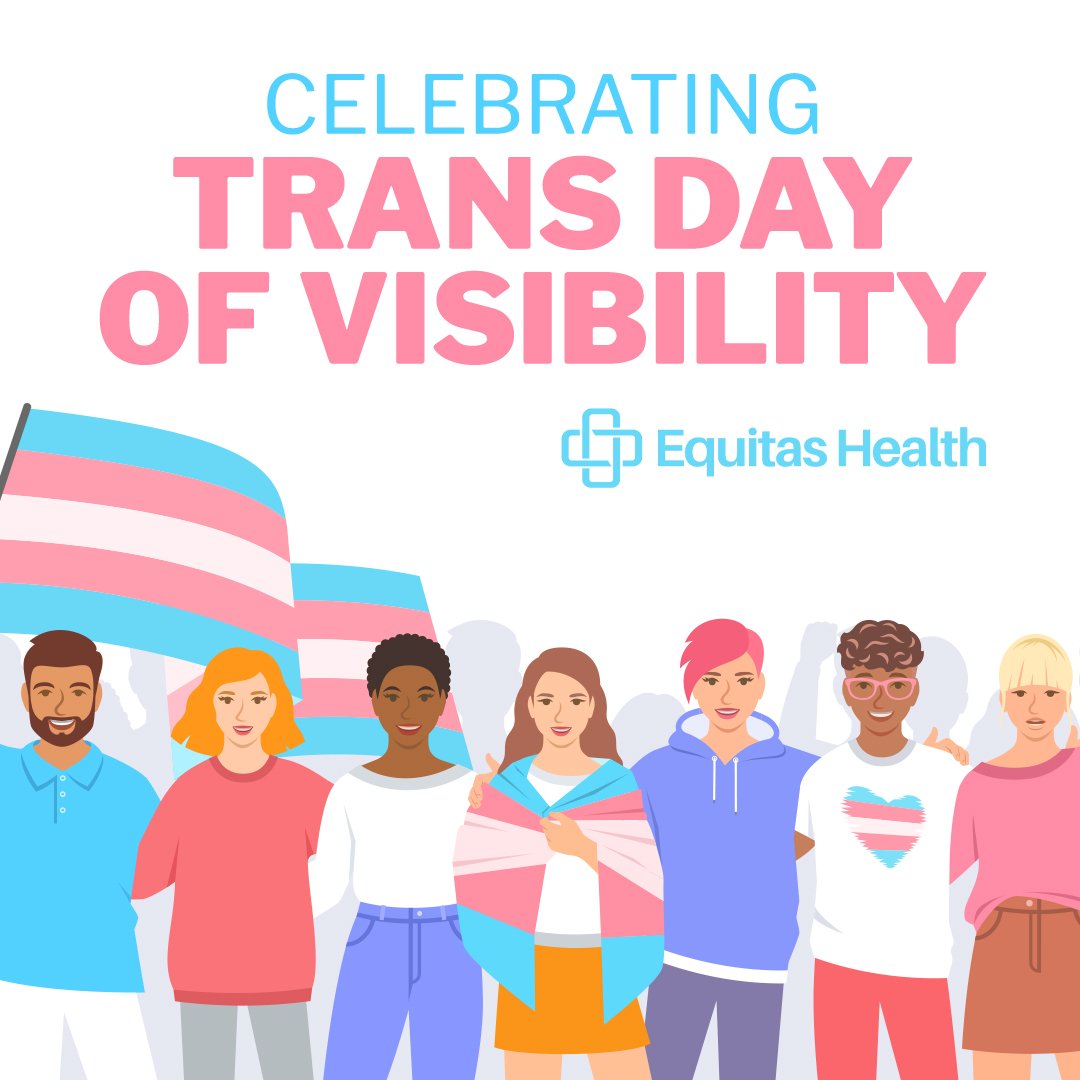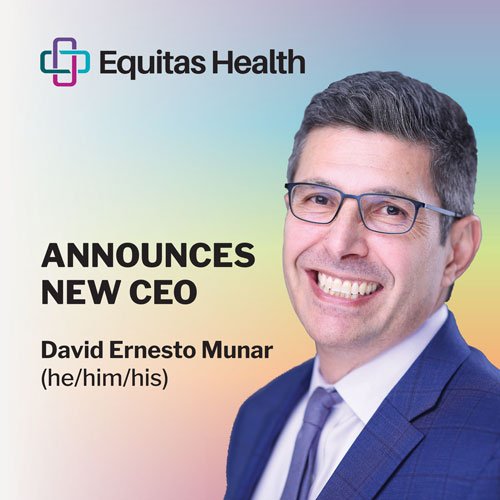Blog 11/1/19
By Mimi Rivard
When Equitas Health added trans health services to our primary care medical centers in 2016, we did not develop trans care as an isolated specialty because transgender and non-binary people—like all patients—each come to us with a unique combination of health needs and goals. You can be trans and also have prediabetes or a nicotine addiction, or depression, or HIV. In fact, the average trans patient at Equitas Health, comes to us with five diagnoses.
Rather than starting with a one-size-fits-all program for trans patients, we begin with each person who walks through the door. We get to know them, spend time learning about their goals, suggest a few goals they may not have considered, and together we develop a treatment plan.
It’s a model rooted in the principals of palliative care—prioritizing patient autonomy and dignity—and it’s producing astounding results.
With almost four years of trans care services on record, our data consistently shows that trans and non-binary people who come to Equitas Health seeking care—typically hormone replacement therapy (HRT)—not only achieve their gender-affirming health goals, they also make life-changing improvements to their overall health. Consider the following:

Blog 3/29/24
Equitas Health is pleased to announce that a collective bargaining agreement has been reached with Equitas Health Workers United Local #6609. Members of the bargaining unit voted this week, and the result was resounding support for ratification of the agreement.

Blog 3/25/24

Blog 3/1/24

Blog 2/27/24

Blog 2/26/24

Blog 1/30/24
The trend continues for smoking cessation, mental health diagnoses, and chronic disease prevention.
For some patients, meeting requirements for gender alignment surgery is the primary motivator to obtain optimal health levels. But many trans and non-binary patients never seek surgical treatment. They come to us for HRT, and then once they’re here—experiencing what is often their first positive healthcare environment—they realize that overall health is within reach.
The positive change in trans patient health outcomes is steady across patients of all incomes and backgrounds. Just over half of Equitas Health trans patients are enrolled in Medicare, Medicaid, or other government health insurance programs, or have no insurance. As Community Health Centers, our medical centers provide care to everyone who walks in the door, regardless of ability to pay. With reduced barriers to care and an affirming environment, low and fixed income trans people are engaging in comprehensive healthcare, and they are achieving off-the-charts outcomes.
These overall health outcomes for trans care patients, particularly among those enrolled in Medicaid, provide a map for what is possible when we make access to gender-affirming care universal. Unfortunately, a new report by the Williams Institute at UCLA finds that less than half of the estimated 152,000 transgender Americans who are enrolled in Medicaid live in states that provide comprehensive gender-affirming care. Add to that the Trump administration’s efforts to dismantle Obama era mandates for gender-affirming care coverage and the recent Federal Court decision upholding the assertion that requiring institutions to provide gender-affirming care violates their religious freedom, and it’s clear we are headed in a direction away from overall improved health outcomes.
Equitas Health’s patient-centered model proves that trusting patients to identify their most pressing health needs and making treatment of those needs affordable and accessible, leads to overall improved health. Offering universal access to affordable and dignified gender-affirming treatment is an integral and essential part of the preventative care spectrum.